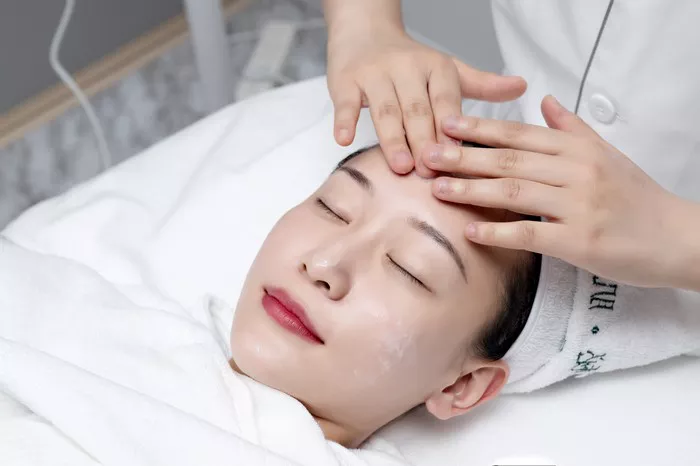The skin barrier is one of the most essential yet often overlooked components of healthy skin. It is not a single part but a complex system primarily located in the outermost layer of the skin, known as the stratum corneum. This layer is made up of corneocytes—flattened dead skin cells—embedded in a lipid matrix composed of ceramides, cholesterol, and fatty acids. Together, they form a structure often compared to a brick wall, where the cells are the bricks and the lipids are the mortar holding everything together.
This protective layer serves as the body’s first line of defense against environmental aggressors. It prevents harmful pathogens, pollutants, and toxins from entering the skin. At the same time, it plays a crucial role in retaining moisture. A well-functioning skin barrier keeps hydration locked in while keeping irritants out. Without it, the skin becomes vulnerable to dryness, inflammation, sensitivity, and infection.
How Does the Skin Barrier Become Damaged?
There are numerous ways in which the skin barrier can become compromised. One of the most common causes is the overuse of harsh skincare products. Cleansers with strong surfactants, alcohol-based toners, and exfoliants containing high concentrations of acids can strip away essential lipids and proteins. This weakens the skin’s structure, leading to increased permeability and water loss.
Environmental factors also play a role. Cold weather, dry air, and strong winds can dehydrate the outer layer of the skin, disrupting the lipid balance. Prolonged exposure to the sun’s ultraviolet rays generates free radicals, which damage the skin’s cellular structure and reduce its ability to repair itself. Pollution, cigarette smoke, and chemical exposure further exacerbate this damage, leading to chronic inflammation.
Internal factors should not be overlooked. Hormonal changes, stress, poor diet, and lack of sleep can all impair the skin’s ability to maintain a strong barrier. Medical conditions such as eczema, rosacea, and psoriasis are often linked to a genetically weakened or easily disrupted barrier. Even aging naturally reduces the production of lipids in the skin, making it more prone to dryness and sensitivity over time.
What Are the Signs of a Compromised Skin Barrier?
When the skin barrier is damaged, it becomes visibly and physically distressed. The skin may feel tight, itchy, and uncomfortable. Redness and inflammation are common, particularly around the cheeks and nose. Flaking, peeling, and rough texture often follow. In some cases, the skin may sting or burn when products are applied, even those that were previously well-tolerated.
Breakouts and increased sensitivity are other common signs. A compromised barrier cannot protect against bacteria and pollutants effectively, making the skin more prone to acne and infection. It may also react more strongly to skincare products or environmental triggers, causing sudden flare-ups or rashes. This sensitivity often leads people to use more products in an attempt to soothe their skin, which can further exacerbate the problem.
One subtle but telling sign is persistent dehydration. Despite using moisturizers, the skin may remain dry or even appear oily but still feel tight. This paradox occurs because the skin produces excess sebum to compensate for the loss of water, not because it is truly hydrated. Understanding these signs can help identify barrier damage early and prompt the appropriate response.
How Can You Repair a Damaged Skin Barrier?
Repairing the skin barrier begins with a minimalist approach. It’s important to stop using products that may be irritating or overly active. This includes exfoliants, retinoids, and high-strength serums. Simplifying your routine to focus on hydration and nourishment is the first step. A gentle, fragrance-free cleanser should be used to clean the skin without stripping it of its natural oils.
Moisturization is critical. Look for products that contain ceramides, which help restore the lipid layer, along with ingredients like hyaluronic acid, glycerin, and squalane, which attract and retain moisture. Occlusive agents like petrolatum or shea butter can also be beneficial as they seal moisture into the skin, giving it time to heal from within.
It’s also essential to give the skin time. Barrier repair does not happen overnight. It may take days to weeks depending on the severity of the damage. During this time, it’s important to avoid triggers like hot water, strong actives, and sun exposure. Wearing sunscreen daily is non-negotiable, as UV rays can worsen barrier dysfunction even in small doses.
What Ingredients Help Strengthen the Skin Barrier?
Certain skincare ingredients are particularly helpful in restoring and maintaining the skin barrier. Ceramides are among the most well-known, as they are naturally found in the skin and play a critical role in the lipid matrix. When applied topically, they reinforce the skin’s structure and improve its ability to retain water.
Niacinamide, also known as vitamin B3, is another hero ingredient. It helps reduce inflammation, regulate oil production, and improve the synthesis of ceramides. Its versatility makes it suitable for nearly every skin type, including sensitive and acne-prone skin. Panthenol, or provitamin B5, soothes and repairs the skin while supporting moisture retention.
Fatty acids, such as linoleic and oleic acid, are also beneficial. These can be found in oils like sunflower, rosehip, and evening primrose. They replenish the skin’s natural lipid content and provide essential building blocks for repair. Colloidal oatmeal and aloe vera are soothing agents that reduce itching and redness while supporting healing.
Peptides and growth factors are newer additions to the barrier-repair toolkit. These molecules signal the skin to regenerate and build stronger cellular connections. Though often more expensive, they can significantly improve resilience and elasticity in compromised skin over time.
How Can You Prevent Future Barrier Damage?
Prevention is key when it comes to maintaining a healthy skin barrier. The most effective strategy is consistency in a balanced skincare routine. Avoiding overly aggressive treatments and unnecessary ingredients helps keep the barrier intact. Cleansing should be done with lukewarm water and non-stripping products, no more than twice a day.
Daily sun protection is crucial. A broad-spectrum sunscreen with at least SPF 30 should be applied every morning and reapplied throughout the day when outdoors. Sunscreen acts as a physical shield, preventing UV-induced damage and inflammation that can compromise the skin’s structure.
It’s also important to listen to your skin. If it feels irritated, dry, or inflamed, it may be signaling that your routine is too harsh or that environmental factors are taking a toll. Adjusting your products based on your skin’s condition and the seasons can help maintain equilibrium.
Hydration from the inside out supports barrier function as well. Drinking enough water, consuming a diet rich in essential fatty acids and antioxidants, and minimizing stress all contribute to healthier skin. Sleep, often underestimated, gives the body time to repair itself, including the skin’s protective layer.
What Role Does Skin Type Play in Barrier Health?
Different skin types respond differently to barrier damage and repair. Dry skin lacks sufficient oil, making it more susceptible to dehydration and cracks in the barrier. People with dry skin should focus on richer emollients and occlusives to seal in moisture and protect against environmental stress.
Oily and acne-prone skin, while often assumed to have a strong barrier, can also suffer from damage due to harsh treatments. Over-cleansing and using drying acne products can strip away protective oils. These skin types benefit from lightweight, non-comedogenic moisturizers that restore balance without clogging pores.
Sensitive skin is inherently more reactive and needs special care. It often has a thinner barrier and is prone to inflammation. Products for sensitive skin should be fragrance-free, pH-balanced, and contain soothing ingredients. Barrier repair in sensitive skin must be done gradually to avoid triggering further irritation.
Combination skin requires a tailored approach, as different areas of the face may have different needs. For example, the T-zone may be oily while the cheeks are dry. A multi-step routine using different products on different areas can help maintain barrier integrity across the face.
How Does a Healthy Barrier Affect Skin Appearance?
When the skin barrier is strong and functioning properly, the skin appears visibly healthier. It retains moisture better, leading to a plump and hydrated look. The surface becomes smoother and softer, with fewer visible lines and flaking. A resilient barrier also reduces the occurrence of breakouts and sensitivity, allowing skin tone to even out over time.
A healthy barrier supports better results from active skincare ingredients. Products like vitamin C, retinoids, and exfoliants work more effectively and cause fewer side effects when the skin is strong and balanced. Makeup also applies more evenly and lasts longer when the skin underneath is smooth and well-hydrated.
Beyond aesthetics, a strong barrier improves comfort. It minimizes itching, burning, and tightness, making skincare and daily life more pleasant. This comfort translates to confidence, as people feel better about their appearance and their ability to manage their skin’s needs.
Related Topics






























